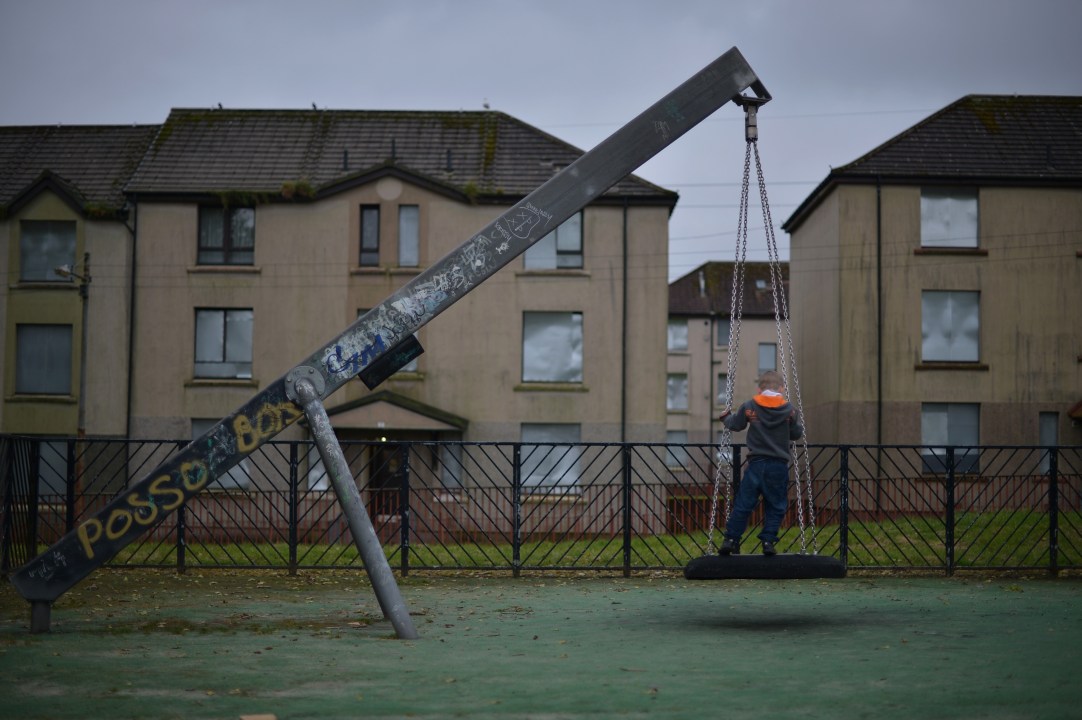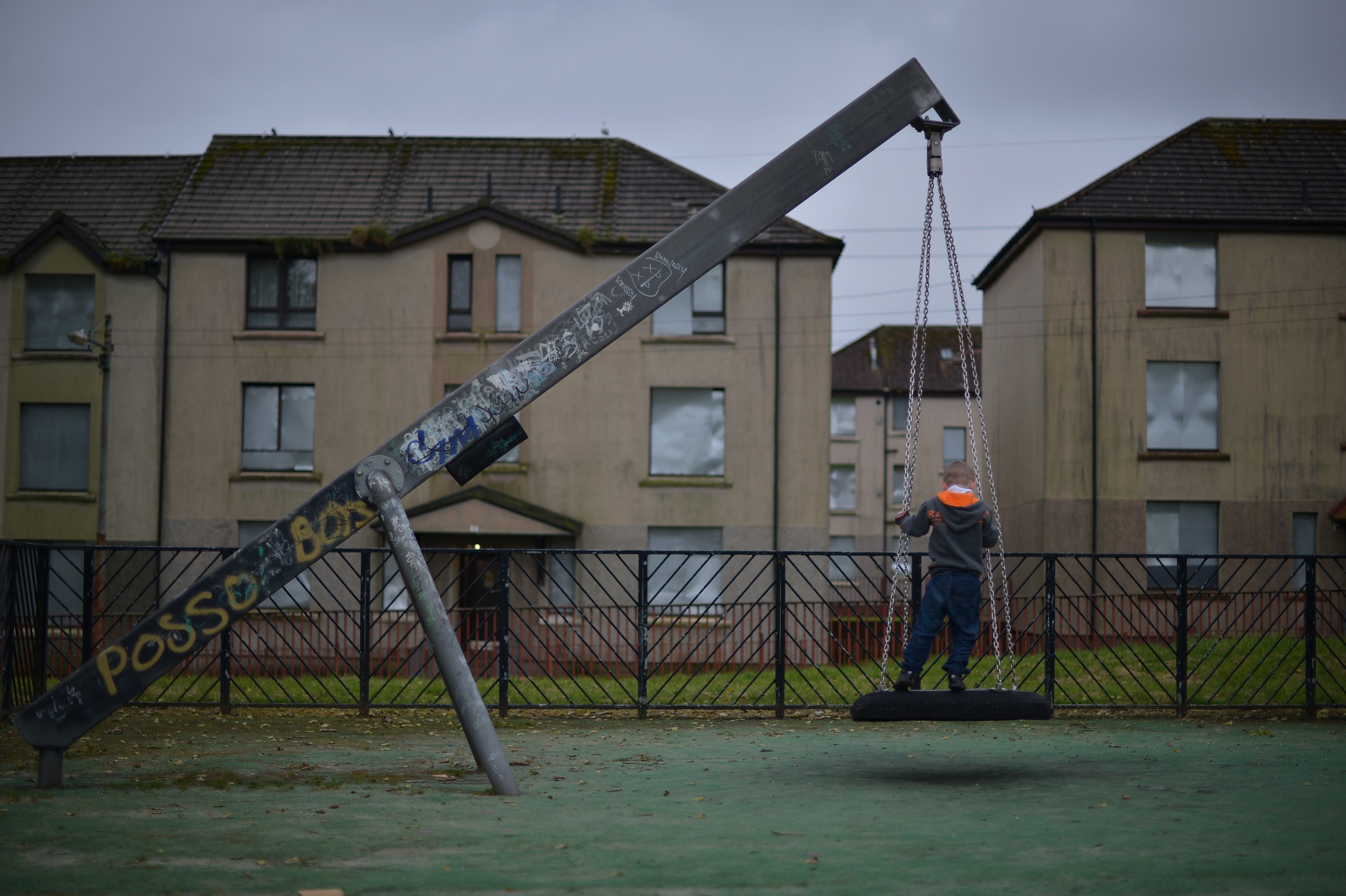The sorry truth of the Philpott case is that almost nothing can be learnt from it. Everything would be so much simpler if there were clear public policy conclusions that could be drawn from the horrors of this case. But there are not. How could there be if we’re expected to mine a case like this for meaning?
It is almost always a mistake to draw firm conclusions from extreme examples of any given phenomenon. The perils of the small sample size should be well enough understood by now to make this clear. It is even dafter to presume too much on the back of a monstrous case such as this.
A recap: Mick Philpott had spawned no fewer than 17 children by at least five different women. He did not work. Instead his family relied upon the safety net. Some estimates suggest that he accrued the equivalent of a pre-tax working income of £100,000 a year from “gaming” the benefit system. He came a cropper when a plan to frame an ex-partner and regain custody of six of his children (and the benefit payments that come with them) went awry. A house fire set by Philpott ended in the most appalling circumstances, killing six of his children. He was convicted of manslaughter this week and received the sternest sentence the court was capable of meting out.
A horrific crime and a horrific individual. But hardly – though mercifully so – typical. That lone fact should be enough to make one wary of drawing too many conclusions from this ghastly story, far less ones that should dictate future government policy.
This is a story about the safety net. Just not the story you think it is. As Hopi Sen says:
How did a man with a conviction for repeatedly stabbing his partner and her mother, who had recently cautioned for beating his wife, who was facing a court case for aviolent road rage attack, whose partner had recently left him and who was trying to manipulate the police into arresting her face, so far as we know, no family intervention, so long as the children went to school and did not appear mistreated? It is not as if the control, violence and obsessiveness that marked Michael Philpott’s relationship with women were hidden from society. They were displayed in plain sight, on national TV, his record known in newspapers, and yet we, collectively, did little but stare and sneer.
Michael Philpott may have profited from the safety net but it didn’t catch his children. There were many failures here and if none of them excuse Philpott or reduce his responsibility, it is also true that the “system” plainly failed too and that there should be many officials in many public agencies pondering their consciences this week.
But, look, it just isn’t true that there are huge numbers of feckless people breeding as often as they can so they may produce feral children to terrorise nice Daily Mail reading neighbourhoods while spongeing off a welfare state that, by god, is too generous by half. Over to Daniel Knowles:
To begin with, it is […] a tiny problem. Though most of them seem to end up in newspapers, in 2011 there were just 130 families in the country with more than ten children claiming at least one out-of-work benefit. Only 8% of benefit claimants have three or more children. What evidence there is suggests that on average, unemployed people have similar numbers of children to employed people. So despite Tory fears, it is not clear at all that benefits are a significant incentive to have children.
Quite.
Welfare is a complicated business. That the system can be “gamed” is not in doubt; that does not mean millions of people are doing so. The public may favour welfare reform but the public also massively over-estimates the extent of benefit fraud.
This is not surprising. Many people know someone on disability benefits who nonetheless is still able to lay five-a-side football once a week. Or they know a kid who shows no interest in work and seems happy to see if he can parlay his giro cheque into something better courtesy of Joe Coral or Victor Chandler. And if you know one person who seems to be idling, it stands to reason to suppose that there must be millions more such stories out there.
Since many of the fabled “hard-working families” are feeling the pinch it is also natural that you’d find increased resentment towards those who are perceived to be loafing on benefits. Hence backbench Tory MPs (and UKIP) argue that people on benefits should not be allowed to purchase tobacco, alcohol or lottery tickets. There is a lot of this petty (but telling) authoritarianism about. It’s not enough to be poor or unfortunate you must be miserable too. Or at least denied even small pleasures. (Incidentally, many “hard-working families” would like to be able to work a little less hard, thank you very much. Must life be this tough?)
The labour market is not divided into two camps with the always-in-work on one side of the river and the permanently-excluded on the other bank. On the contrary, there is plenty of traffic between them. People move in and out of the workforce. Many people on benefits, of course, only require them for a short time. Many people, too, are only on benefits because they have been unlucky. It wasn’t their fault their factory closed and they’ve been out of work for six months.
I regret to say that this kind of rancid authoritarianism has even infected the Spectator. Douglas Murray, for instance, thunders that “people who have no job and no prospect of getting one and yet have more children are bad and selfish people.” Perhaps they are. Should abortions be compulsory in such circumstances? Should there be a minimum income threshold below which you are not permitted more than one or, at a pinch, two children? How do you determine who has “no prospect” of getting a job? As Douglas says “exactly how this should be done can be debated”. I suppose it can! Welcome to Beijing-on-the-Humber.
Not that Douglas Murray is alone in this. David Davis suggests child benefit should be limited to the first two children in any family. You can tell this is an idiotic idea because it is enthusiastically endorsed by Bernard Jenkin. As Freddy Gray says, there is something distasteful about the relish with which it is suddenly fine and dandy to express your revulsion at the feckless poor and their irresponsibly large families.
No-one disputes that there are pockets of British life in which welfare dependency has become a real problem. It needs to be addressed. But, again, there is something unpleasant, even vile, about the eagerness with which many commentators (particularly on the right) are using the Philpott’s horrific and by any standards unusual case as an excuse for fulminating against the revolting poor.
Philpott might have acted differently had the welfare state been constructed in a different fashion. He might also have acted differently had social services or the police performed their duties more effectively. He was a “product” of their failure too. Oddly, George Osborne and others seem less concerned by that failure.
No-one approves of Philpott (and Labour’s response to it may well be daft) but though the Daily Mail may have gone too far this week it was scarcely the only paper to do so. The Daily Mirror marked this week’s benefit changes with a cartoon showing Osborne and Iain Duncan Smith hammering a coffin shut on the poor. Now there’s a difference between a cartoon and the Mail’s clumsy attempt to blame Philpott on welfare but, in terms of the hysteria involved, the difference is more of degree than kind. Not that the tabloids are the only blatts at fault. The Guardian has been fond of asking Do cuts kill?
Too much, much too much. This hyperbole and competitions to see who can be the most outraged do none of us much good. We lose all perspective. It is, again, true that too many British families too often have to rely upon the state for support. But these are not all feckless or hopeless or otherwise useless families. Not by any means. And it is silly to suppose they must be just because they are down on their luck.
There’s nothing wrong with judging and condemning Michael Philpott’s lifestyle but, for god’s sake, that’s an easy case. Or should be, anyway. Most of the time matters are far from anything like as clear-cut as that and a blanket condemnation is not necessarily likely to do anything more than prop up the accuser’s own self-regard.
Douglas Murray concluded his post with this storm-warning:
However, as the war against Iain Duncan Smith’s efforts has shown, this country appears unwilling to make such basic judgements. It often seems that we are going to have to hit the bottom and break completely before some people realise it needs fixing at all.
Oh, for god’s sake. Again, yes, there are real problems. There are parts of Britain that remain shamefully deprived. There are parts of the country in which social alienation is rampant and parts in which integration is nothing more than a pipe-dream. All of this is dismal and worthy of attention.
But let’s not go too far. Society is not in imminent danger of collapse. British society is, in some respects, an impressively relaxed yet cohesive thing. In most places we rub along reasonably well most of the time. That’s not so modest a claim as it may seem.
And, though the newspapers will rarely tell you this, in many ways life in Britain is getting better not worse. It really is. We’re always being told that we’re all drinking far too much but, actually, alcohol consumption has been declining for the last decade. Sure, too many teenagers and young men spend too much time brawling in our town centres and sure there’s too much loutishness. Nevertheless, crime is falling. In England and Wales it is 30% lower than it was ten years ago. Homicide rates (in England and Wales) are half what they were at the turn of the century.
As for families? Well, there’s good news there too. Though fewer couples are choosing to marry, the divorce rate amongst those that do is now at its lowest since the 1970s. But what about all those teenage girls getting pregnant so they can waddle to the front of the social housing queue? Well, guess what, there aren’t as many of them as there were either. Teenage pregnancy rates in England and Wales were last this low way back in 1969.
Broken Britain heading for the abyss? No, not really. I wouldn’t say we’ve never had it so good but we’ve also had it much worse than this in the past. The best response to the Philpott horrors might be to note that nothing straight was ever made from the crooked timber of humanity. Using this horrific but wholly atypical case as the basis for rethinking something as complicated as the welfare state is a kind of madness. No wonder it’s widespread on Fleet Street and at Westminster.
But, again, boring though it is to say so Philpott proves almost nothing about anything.








Comments